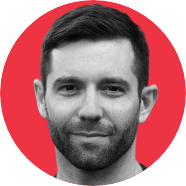LAB2FAB
Workshop 2022
Program Committee
Shedding Light on Innovation | 2022 Workshop
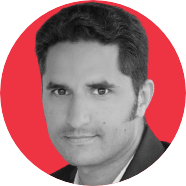
Alan Renaudin, Jr. Eng., Ph.D.
Alan Renaudin is a business development director at C2MI, Strategic partnership and Marketing and IEEE Entrepreneurship manufacturing resources lead. Entrepreneur at heart and intrapreneur on the field, he was previously involved in the Photonic business as an entrepreneur with a strong background in lab-On-chip applications and he holds a doctorate in microelectronics.
Passionate about driving the deep tech industry into a new era of innovation ecosystem, Alan focuses on accelerating the development and commercialization of microelectronics components enabling digital technologies. Confident that a collaborative ecosystem, involving international industrial, governmental, and academic players is key to accelerating commercialization, he is unfolding a world-class network, based on C2MI team, partners, and collaborators, dedicated to the maintenance of a market driven dynamic and rigorous expertise.

Andrew Fung, PhD
CMC Microsystems
Andrew Fung seeks to advance technology development agendas for micro- and nano-enabled systems. He brings 20 years of international experience in industry teams and academic research with broad awareness of integrated microsystems and applications experience in biomedical nanotechnology. He enjoys multi-disciplinary technology development that combines business modelling with user focus. As a Technical Team Lead at CMC Microsystems, he drives technology strategy and product development for a growing portfolio of MEMS processes, emerging nanofabrication technology, and heterogeneous integration. Andrew holds a PhD in Biomedical Engineering from the University of California Los Angeles and a BASc in Electrical Engineering from University of Waterloo.
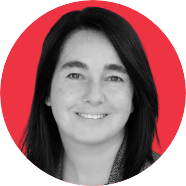
Annie Dallaire, MSc MBA
Annie Dallaire has been working in the field of microelectronics, especially in the semiconductor manufacturing field, for more than 20 years. She joined C2MI’s team as Director of Business Development in December 2016. Now, Vice-president, Business Development, her role consist, among other things, to developing appropriate strategies for C2MI members and clients, as well as supporting them through their projects and product development. She is also one of C2MI spokesperson in many external technical and scientific events.
She first worked as a process scientist in plasma etching for 9 years at Mitel Semiconductors (now Teledyne DALSA Semiconductors). This position allowed her to acquire a strong knowledge of the CMOS, CCD and MEMS manufacturing processes. She was involved in several process improvement, cost reduction and technological development projects as well as project management.
She was then assigned the management of a group of development scientists within the same company. Annie developed a solid experience in day-to-day operation management, including engineering management with projects focused on capacity expansion, cost reductions, productivity improvement and quality control.
Annie holds a Bachelor’s degree in Physics and a master’s degree in plasma physics from the Université de Montréal, as well as a MBA from Université Laval.

Dominique Drouin, PhD EIT
Prof. Drouin hold an NSERC/IBM Industrial Research Chair NSERC/IBM in High-Performance Heterogeneous Integration developing state-of-the-art microelectronic packaging technology. Within this program he his developing innovative approach targeting high density interconnect for high performance computing applications. He also has developed an expertise in the fields of nanoelectronics (Resistive RAM, pH/gas sensors) and more specifically targeting BEOL integration on FD-SOI CMOS technology. He also works on developing and fabricating dedicated hardware for machine learning and neuromorphic applications. This expertise is also applied to enable largescale silicon spin qubit platform using memristor based neuromorphic circuits for quantum dots autotuning for spin qubit control.
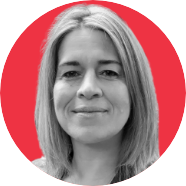
Karin Hinzer, MSc PhD
University of Ottawa
She is the Vice-Dean, Research of the Faculty of Engineering, the University Research Chair in Photonic Devices for Energy and a Professor at the School of Electrical Engineering and Computer Science with a cross-appointment in the Department of Physics at the University of Ottawa. She received the BSc, MSc, and PhD degrees in physics from the University of Ottawa, Ottawa, Ontario, Canada, in 1996, 1998, and 2002, respectively. She has made pioneering contributions to the experimental physics of quantum dots marked by two landmark papers in Science. She gained extensive experience in the design and fabrication of group III-V semiconductor devices while at the National Research Council Canada, Nortel Networks and then Bookham (now Lumentum). Cost reduction strategies and liaison with remote fabrication facilities strongly feature in her industry experience.
Professor Hinzer joined the University of Ottawa in 2007 where she founded the SUNLAB, the premier Canadian modelling and characterization laboratory for next generation multi-junction solar devices and concentrator systems. Professor Hinzer’s research involves developing new ways to harness the sun’s energy. From 2007 to 2017, she was the Tier II Canada Research Chair in Photonic Nanostructures and Integrated Devices. In 2010, she was the recipient of the Inaugural Canadian Energy Award with industry partner Morgan Solar for the development of more efficient solar panels. In 2015, she received the Ontario Ministry of Research and Innovation Early Researcher Award for her contributions to the fields of photonic devices and photovoltaic systems and in 2016, she was the recipient of the University of Ottawa Young Researcher Award. She is a member of the College of New Scholars, Artists and Scientists of the Royal Society of Canada and an IEEE senior member. Professor Hinzer is the principal investigator of the Natural Sciences and Engineering Research Council of Canada Collaborative Research and Training Experience Program titled “Training in Optoelectronics for Power: from Science and Engineering to Technology” (NSERC CREATE TOP-SET), a multi-disciplinary training program involving three universities and aiming to train over 100 students in seven years.
Professor Hinzer is an editor of the IEEE Journal of Photovoltaics. She has published over 170 refereed papers, trained over 150 highly-qualified personnel and her laboratory has spun-off three Canadian companies in the energy sector. Her research interests include new materials, high efficiency light sources and light detectors, solar cells, solar modules, new electrical grid architectures and voltage converters.
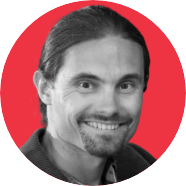
Lukas Chrostowski, PhD
University of British Columbia
Lukas Chrostowski is a Professor of Electrical and Computer Engineering at the University of British Columbia, Vancouver, BC, Canada. Born in Poland, he earned the B.Eng. in electrical engineering from McGill University and the PhD in electrical engineering and computer science from the University of California at Berkeley. With research interests in silicon photonics, optoelectronics, high-speed laser (VCSEL) design, fabrication and test, for applications in optical communication systems and biophotonics, he has published more than 200 journal and conference publications.
He co-edited a book “High-Speed Photonics Interconnects” (2013), and co-authored the book “Silicon Photonics Design” (Cambridge University Press, 2015). Dr. Chrostowski served as the co-director of the University of British Columbia AMPEL Nanofabrication Facility (2008-2017). He is the Program Director the NSERC CREATE Silicon Electronic-Photonic Integrated Circuits (Si-EPIC) research training program in Canada, and has been teaching numerous silicon photonics workshops and courses since 2008.
He spent his 2011-12 sabbatical at the University of Washington, Seattle, with Michael Hochberg’s group. Chrostowski received the Killam Teaching Prize at the University of British Columbia in 2014. He was an elected member of the IEEE Photonics 2014-2016 Society Board of Governors and serves as the Associate VP of Education (2014-). He was awarded a Natural Sciences and Engineering Research Council of Canada Discovery Accelerator Supplements Award in 2015.
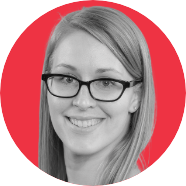
Jocelyn Bachman, PhD
As the Photonics Device Specialist at Applied Nanotools, Jocelyn helps customers move their designs from concept to reality. She provides both design and fabrication support for Applied Nanotools’ NanoSOI Photonics Fabrication Service and Interposer Fabrication Service. Jocelyn also manages the NanoSOI Process Design Kit, including the development of new designs. Jocelyn holds a PhD in Physics, an MSc in Electrical Engineering, and a BSc in Engineering Physics, all from the University of Alberta. She was a Vanier Canada Graduate Scholarship recipient and has over ten years of hands-on microfabrication and characterization experience.
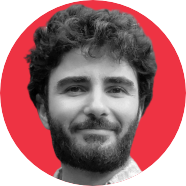
Alex Anees
Stewart Blusson Quantum Matter Institute

Sarah Neville
CMC Microsystems
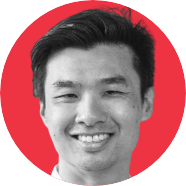
Steve Gou
Stewart Blusson Quantum Matter Institute
Steven Gou manages SBQMI projects in the fields of nanofabrication, electron beam lithography, and integrated photonics. These include SiEPICfab, the Canadian Silicon Photonics Foundry, and the Silicon Quantum Leap Project.
